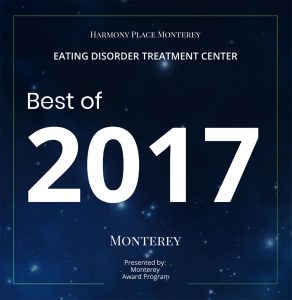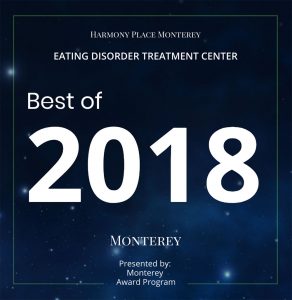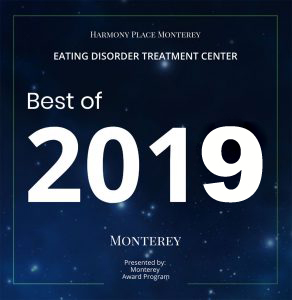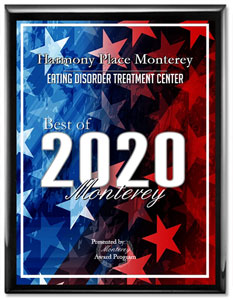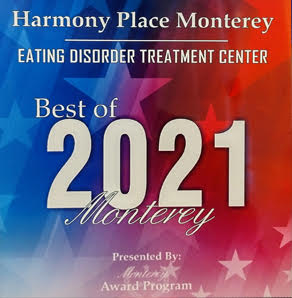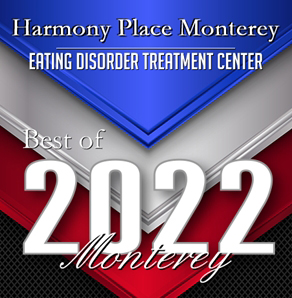Alcohol abuse or binge drinking generally presents with a co-occurrence mental disorder. Often the individual self-medicates their anxiety, depression or other out of control behaviors. Also common is a history of adverse life events or trauma.
Following abstinence and detox recovery really begins. Typically, the individual is flooded with all the issues “put under the rug” that they avoided dealing with for years. The Unique aspect of the Harmony Place Monterey Program is a blending together of effective psychotherapy, medication management, relapse-prevention and life coaching and 12 step or spiritually based interventions including Buddhist Principles of Refuge Recovery.

Photo by Ross Findon
Refugee Recovery:
- Refuge Recovery: Is a mindfulness-based addiction recovery community that practices and utilizes Buddhist philosophy as the foundation of the recovery process. Drawing inspiration from the core teachings of the Four Noble Truths, Emphasis is placed on both knowledge and empathy as a means for overcoming addiction and it causes. Those struggling with any form of addiction greatly benefit when they are able to understand the suffering that addiction has created while developing compassion for the pain they have experienced. We hope to serve you, and meet you on the path.
- Refuge Recovery: Refuge Recovery is a practice, a process, a set of tools, a treatment, and a path to healing addiction and the suffering caused by addiction. The main inspiration and guiding philosophy for the Refuge Recovery program are the teachings of Siddhartha (Sid) Gautama, a man who lived in India twenty-five hundred years ago. Sid was a radical psychologist and a spiritual revolutionary. through his own efforts and practices, he came to understand why human beings experience and cause so much suffering. He referred to the root cause of suffering as “uncontrollable thirst or repetitive craving.” This “thirst” tends to arise in relation to pleasure, but it may also arise as a craving for unpleasant experiences to go away, or as an addiction to people, places, things, or experiences. This is the same thirst of the alcoholic, the same craving as the addict, and the same attachment as the codependent.
- The Eight-Fold Path to Recovery: This is an abstinence-based path and philosophy. We believe that the recovery process begins when abstinence begins. The Eight factors of the path are to be developed, experienced and sustained. This is not a linear path, it does not have to be taken in order, rather all of the factors will need to be developed and applied simultaneously. This is a guide to having a life that is free from addiction. The eight-fold path of recovery will have to be maintained throughout one’s lifetime.
The Eight-Fold Path to Recovery
- Understanding:
-
- We understand that recovery begins when we renounce and abstain from all substances or addictive behaviors regardless of specific substances we have become addicted to. Forgiveness, non-harming actions, service and generosity are a necessary part of the recovery process. We can’t do it alone; community support and wise guidance are an integral part of the path to recovery. We begin to open to and Alcoholism acknowledge the reality of our situation and come to terms with the reality that life is an ongoing process of change, on-going difficulties and we begin to see this process as something that is not happening to “us”; we move from being in a state of reacting to developing an awareness that can respond to the ups and downs of our lives. We begin to take responsibility for the relationship that we have to our own life experience.
- Intention: We begin to move towards a lifestyle that is rooted in non-harming by establishing clear intentions and work to change our relationship towards the minds unwholesome tendencies and habits. We intend to meet all pain with compassion and all pleasure with non-attached appreciation. The practices of non-harming both internally and externally become a foundational part of daily life.
- Communication/Community:
- We take refuge in the community as a place to practice wise and skillful communication and to support others on their path. We practice being honest, wise and careful with our communications, asking for help from the community, allowing others to guide us through the process. Practicing openness, honesty, and humility about the difficulties and successes we experience.
- Action: We abstain from all substances and behaviors that could lead to suffering. We practice forgiveness toward all people we have harmed or been harmed by, including ourselves, through both meditative training and direct amends. Compassion, non-attached appreciation, generosity, kindness, honesty, integrity and service are our guiding principles.
- Livelihood/Service: We begin to look at our relationship to money. We try to be of service to others whenever possible, being generous with our time, energy, attention and resources to help create positive change. We try to secure a source of income/livelihood that causes no harm.
- Effort: We commit to the daily disciplined practices of meditation, yoga, exercise, wise actions, kindness, forgiveness, generosity, compassion, appreciation and moment-to-moment mindfulness of feelings, emotions, thoughts, and sensations. To develop these skills requires time and patience. It is important to begin to understand how to apply the appropriate action or meditation practice in any given situation or circumstance. We will need to develop the willingness and discipline that is required to stay with it and to keep going when we make mistakes.
- Mindfulness/Meditations: We develop wisdom and understanding through practicing formal mindfulness meditation. This leads to seeing clearly and healing the root causes and conditions that lead to the suffering of addiction. We practice present-time awareness in all aspects of our life. We move towards taking refuge in the present moment; to engage wholeheartedly in our lives as it unfolds in the here en now. We begin to develop a daily sitting practice of mindfulness and heart practices. We make a commitment to sitting at home and with others.
- Our core principles are mindfulness, compassion, forgiveness and generosity. We commit to being open and accessible to all who seek refuge.
Harmony Place is located within the city limits of Monterey. Here at Harmony Place, we know how hard it is to start the road to recovery from alcohol addiction. Our medical team and staff have many years of experience with helping countless of people come off of drug and alcohol addiction with our drug and alcohol addiction treatment while having compassion and patience for those recovering. We have many services to cater to each individual in regards to their lifestyle and budget. Our inpatient detox center is made to make everyone feel safe and at home, our outpatient detox treatments are for those who cannot take time off from work or family, and we have other services to cater to any other lifestyles so detoxing is made easier for those wanting to heal from alcohol addiction.
Contact us today for further information over our services and see which one fits for you or a loved one. Don’t think you are alone; we are here to help you on your road to recovery.
Alcohol Addiction Resources
- Alcohol Use Disorder
- Overview of Alcohol Use Disorder
- Medication for the Treatment of Alcohol Use Disorder: A Brief Guide
- Alcohol Questions and Answers
- Alcohol Use Disorder, Substance Use Disorder, and Addiction
- Drug Topics: Alcohol
- Medications for the Treatment of Alcohol Use Disorder
- Alcohol Abuse and Addiction
- Alcohol and Health
- The Alcohol Use Disorders Identification Test
- Substance Abuse
- What Is Addiction?
- Alcohol Use Disorder: When Is Drinking a Problem?
- Alcohol Use as a High-Risk Health Behavior
- Alcohol Abuse Quiz
- Researchers Examine the Causes, Effects, and Treatments for Alcohol Use Disorder
- Alcohol Poisoning, Alcohol Abuse, and How to Help
- Recognizing the Symptoms of Alcoholism
- Treating Alcoholism as a Chronic Disease
- How to Know if You Have a Problem With Alcohol and Get Help
- Medical Consequences of Alcohol Abuse
- 30 Facts About Alcohol and Five Myths: Statistics and More
- How to Talk to Your Kids About Drinking
- How Can I Prevent My Child From Using Alcohol or Drugs?
- Talking to Teens About Alcohol
- Alcohol Screening and Brief Intervention for Youth
- Talking to Your College Student About Alcohol
- The Facts on Teen Drinking
- Talking With Your College-Bound Young Adult About Alcohol
- Conformity: Drug and Alcohol Abuse Within Adolescent Communities
